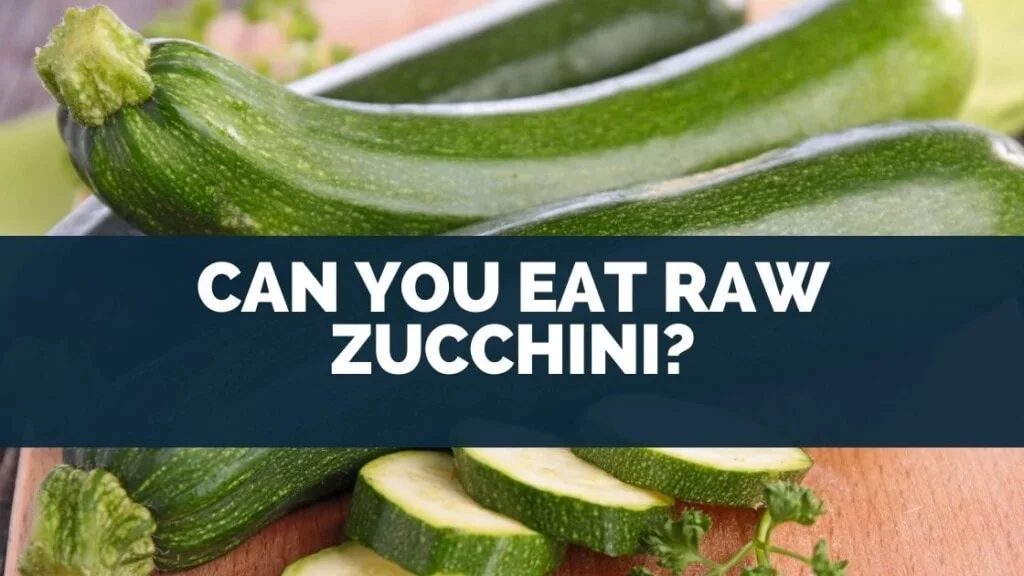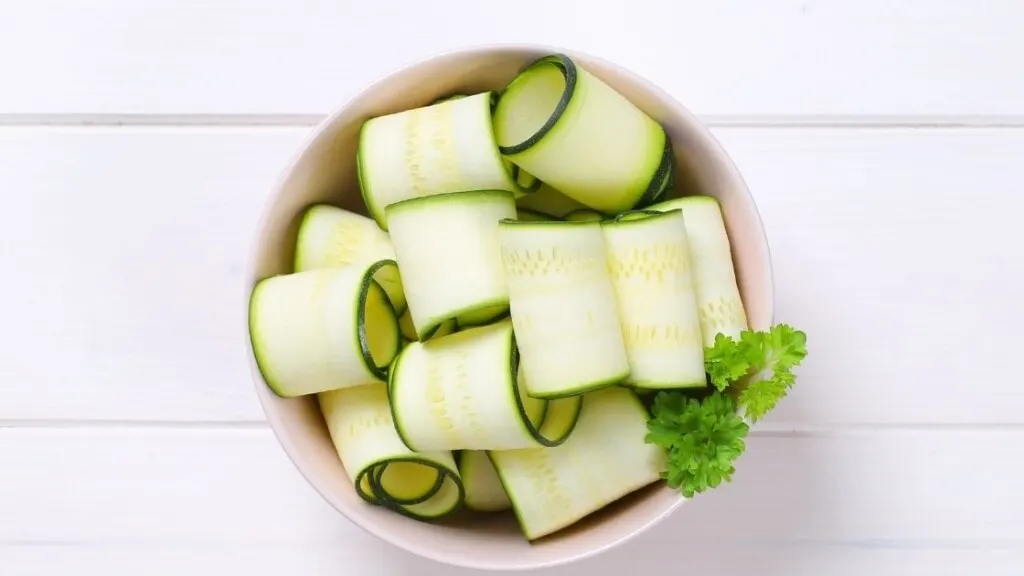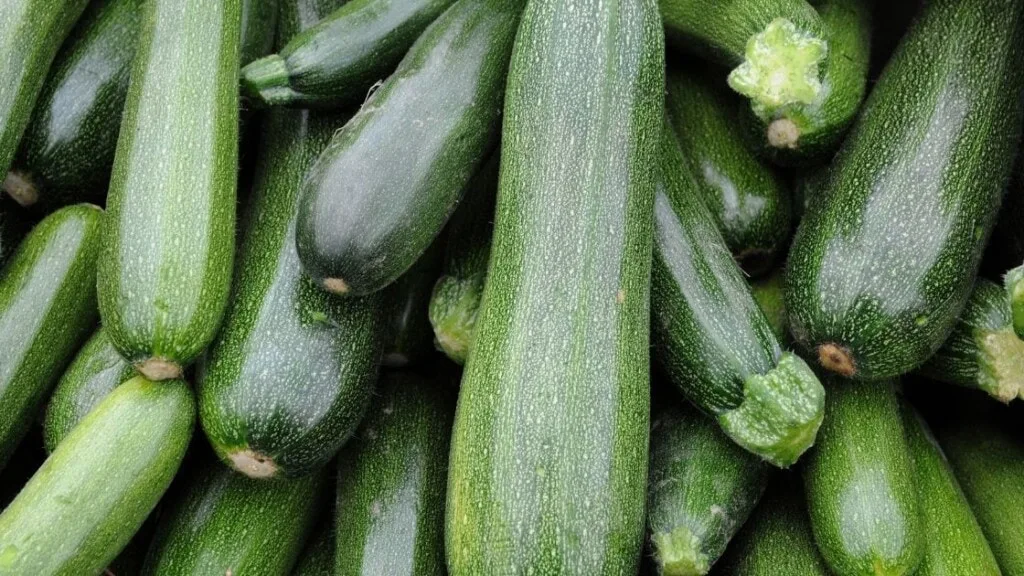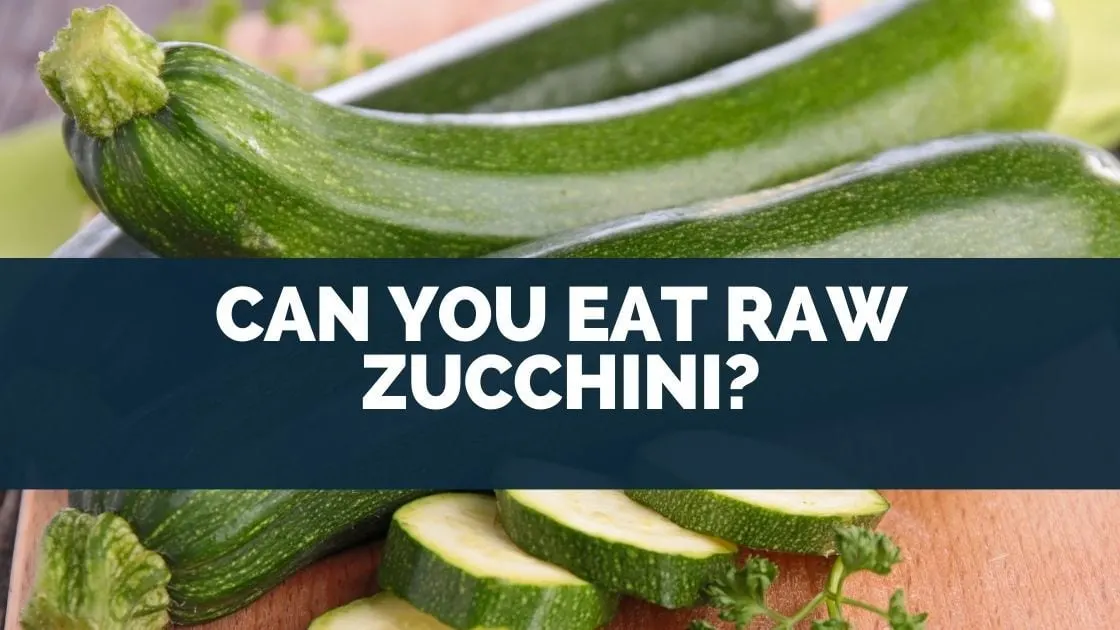
Zucchini is a type of summer squash that is so versatile, that can be used in many different ways – from raw to cooked.
Even though zucchini is usually cooked, many people like it as is, eating it raw, shaved, or chunked.
It works well in salads, as a wrap or even shaved into noodles, and as a dip or spread it works very well to
But it is possible that eating raw zucchini could be bad for your health.
This article will answer the question, “Can you eat raw zucchini?” and the things you should be very mindful of when
Table of Contents
Eating Raw Zucchini Answered

Yes, you can eat raw zucchini. As with many other vegetables, this one has more nutrients when it’s raw.
However, you should be careful when you eat it. let me explain
Sidenote – Zucchini can be fermented to make a type of relish!
Safety and precautions
Zucchini that is sold in stores should be safe to eat fresh.
They are tasty, healthy, and can be used in many ways.
However, if you bite into a very bitter zucchini, throw it away. This is a sign that there are too many cucurbitacins in it, which can be harmful.
Despite the fact that it is very unlikely that you will buy a very bitter zucchini at the supermarket, it is best to throw it away if you do.
The vast majority of food sold in supermarkets or on farms is safe to eat raw or cooked.
To make sure there are no bacteria in the zucchini, wash it very well. In addition, make sure it is properly stored in the fridge for later use.
Potential risks
Raw zucchini is usually safe to eat and has few to no side effects.
There are, of course, some people who are very angry. Cucurbitacins, which are found in squash, zucchini, and gourds, are what make the food taste bitter.
Cucurbitacin-rich foods have been linked to sheep and cattle getting sick and dying. They have been linked to nausea, vomiting, diarrhea, hair loss, and even death in people.
However, these effects were only seen when people ate members of the Cucurbitaceae family that had a lot of cucurbitacins, like some gourds that were not commercially grown.
Cucurbitacin poisoning is dangerous, but it isn’t very common in store-bought zucchinis because the zucchinis are carefully bred to have low cucurbitacin levels. Instead, be careful when eating wild zucchini because they are more likely to have these compounds.
In order to avoid getting sick from cucurbitacin poisoning, you should spit out and throw away the whole zucchini if it tastes very bitter when you bite into it.
If you eat a piece of raw fruit, there is a chance that bacteria or parasites could get into it.
If you don’t want to get food poisoning, wash the fruit in cold water and scrub the skin with a soft brush. Keep the zucchini slices in the fridge.
Benefits of zucchini

These green summer squashes are often thought of as vegetables, but they are actually fruits. They, like most fruits, have a lot of good vitamins and nutrients in them.
The following are some of the ways in which eating zucchini can help you stay healthy.
Vitamins, nutrients, and antioxidants
Potassium is very common in zucchini, and your body needs it for a lot of things, like kidney and heart function, muscle contraction, and nerve transmission.
Zucchini is also rich in vitamin C, which is a powerful antioxidant. It is needed to make collagen, which is a part of connective tissue. This is very important for wound healing.
Also, vitamin C’s strong antioxidant properties may help prevent or delay the development of cancers and diseases, such as heart disease and lung disease.
Dietary fiber
Three grams of fiber are found in one large zucchini, which will help you meet your daily fiber needs.
Zucchini has both soluble and insoluble fiber, both of which help keep your bowel movements regular. Everyone wants to poop the right way.
It also feeds your gut microbiome, which is important because you want those guys to be happy down there. When your gut bacteria are cared for properly, they may play a big role in controlling your metabolism, boosting your immune system, and protecting you from getting sick.
Blood sugar levels
We all know that eating more fruits and vegetables, in general, is good for us. However, it’s hard to overstate how good these guys are for your health, especially your blood sugar.
People who eat more fruits, berries, and fibrous vegetables are less likely to get type 2 diabetes, according to a 2016 meta-analysis.
You can keep your blood sugar levels stable by eating zucchini. Zucchini is low in carbohydrates and high in fiber, which is a good combination for that.
Promotes weight loss
A meta-analysis that was published in 2016 found that eating foods with a low energy density led to less weight gain.
Zucchini is a vegetable that has a lot of water and fiber. It has a low-calorie count, too. It can help you stay full for longer periods of time and help you keep track of how many calories you eat.
Good eye health
The most common form of vitamin A found in food and supplements is beta-carotene. You need it to make healthy vision, the immune system, and reproduction happen in your body.
In addition, zucchini has the antioxidants lutein and zeaxanthin, which are carotenoids that are found in the retina and the rest of the visual system. People who eat a lot of foods rich in these compounds may be less likely to get age-related macular degeneration.
How to tell if zucchini has gone bad
Fresh zucchini bought at the grocery store can be kept in the fridge for up to two weeks. This may seem like a long time, but it’s true!
You can tell when zucchini is bad by looking for a few things, just like any other fruit or vegetable.
- Is there any visible mold?
- Is it smelly?
- Is it becoming very soft?
- Is it watery?
Keep an eye out for bitter zucchinis, as well they might cause problems.
Final thoughts
Raw or cooked, zucchini is an underappreciated fruit that packs a lot of nutrition into a small package. You can eat raw foods, and they may even help keep nutrients that would be lost when you cook them.
Keep an eye out for bitter zucchini, which could be a sign of toxins, and don’t eat it if you have an allergy to squash.


Leave a comment